Wow........what a shock from my stove
catherinet
16 years ago
Featured Answer
Sort by:Oldest
Comments (38)
DavidR
16 years agocatherinet
16 years agoRelated Professionals
Sierra Madre Electricians · Framingham Center Electricians · Anderson General Contractors · Country Club Hills General Contractors · Dover General Contractors · Glenn Dale General Contractors · Henderson General Contractors · Jackson General Contractors · Kyle General Contractors · Leominster General Contractors · West Melbourne General Contractors · Millbury Handyman · East Brunswick Solar Energy Systems · Norwich Solar Energy Systems · Medford Home Automation & Home Mediabigbird_1
16 years agocatherinet
16 years agoDavidR
16 years agonormel
16 years agocatherinet
16 years agokitchen_wired
16 years agoabnorm
16 years agocatherinet
16 years agocatherinet
16 years agojoefixit2
16 years agoDavidR
16 years agocatherinet
16 years agocatherinet
16 years agocpovey
16 years agobus_driver
16 years agocatherinet
16 years agocatherinet
16 years agobigbird_1
16 years agocatherinet
16 years agobigbird_1
16 years agocatherinet
16 years agobigbird_1
16 years agocatherinet
16 years agocatherinet
16 years agoDavidR
16 years agocatherinet
16 years agodickross
16 years agoabnorm
16 years agocatherinet
16 years agocatherinet
16 years agoabnorm
16 years agocatherinet
16 years agojoefixit2
16 years agocatherinet
16 years agoBob Thompson
3 years ago
Related Stories

INSIDE HOUZZHouzz Prizewinners Take Their Kitchen From ‘Atrocious’ to ‘Wow’
A North Carolina family gets the kitchen they always wanted — and not a minute too soon — courtesy of the Houzz sweepstakes
Full Story
COLOR8 Pink and Purple Rooms Sans Sugar Shock
Little-girl dreams find grown-up expression in rooms that work pink and purple into chic and sophisticated palettes
Full Story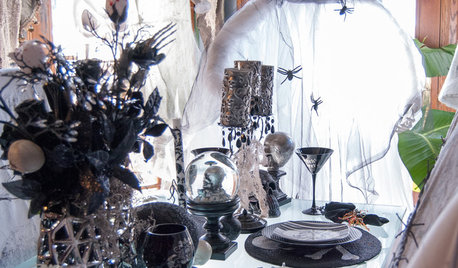
HALLOWEENSee a Shockingly Stylish Halloween Home
Skilled in casting an alluring spell, this Ohio home just might conjure inspiration for your own chambers
Full Story
DECORATING GUIDESNature’s Color Wisdom: Lessons on Pink From the Great Outdoors
Leave your assumptions about pink at the princess playhouse door. Head outside instead for shades from shocking to subtle
Full Story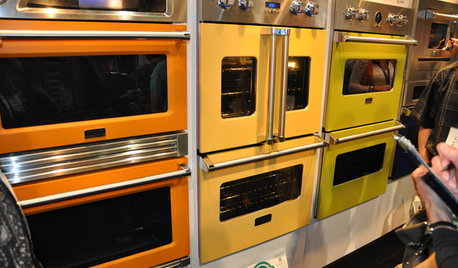
KITCHEN DESIGNStandouts From the 2014 Kitchen & Bath Industry Show
Check out the latest and greatest in sinks, ovens, countertop materials and more
Full Story
KITCHEN DESIGN20 Kitchen Must-Haves From Houzz Readers
We asked you to tell us your top kitchen amenities. See what popular kitchen features made the list
Full Story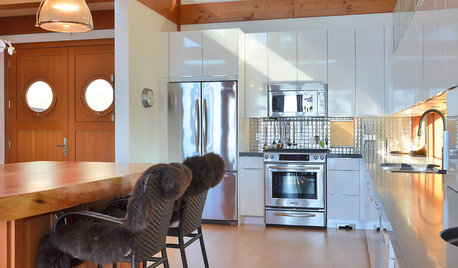
REMODELING GUIDES6 Must-Know Lessons From a Serial Renovator
Get your remodel right the first time, with this insight from an architect who's been there too many times to count
Full Story
DECORATING GUIDES10 Design Tips Learned From the Worst Advice Ever
If these Houzzers’ tales don’t bolster the courage of your design convictions, nothing will
Full Story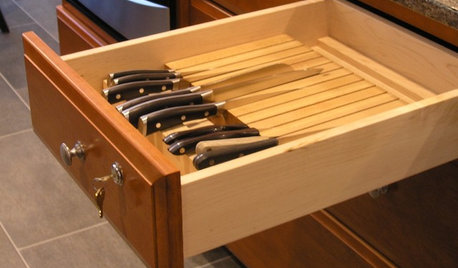
REMODELING GUIDESFrom the Pros: 8 Reasons Kitchen Renovations Go Over Budget
We asked kitchen designers to tell us the most common budget-busters they see
Full Story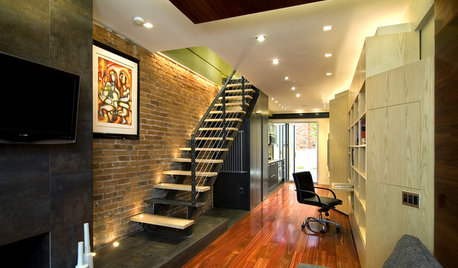
HOUZZ TOURSDesign Lessons From a 10-Foot-Wide Row House
How to make a very narrow home open, bright and comfortable? Go vertical, focus on storage, work your materials and embrace modern design
Full Story







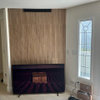
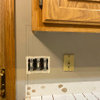
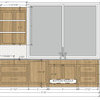
brickeyee